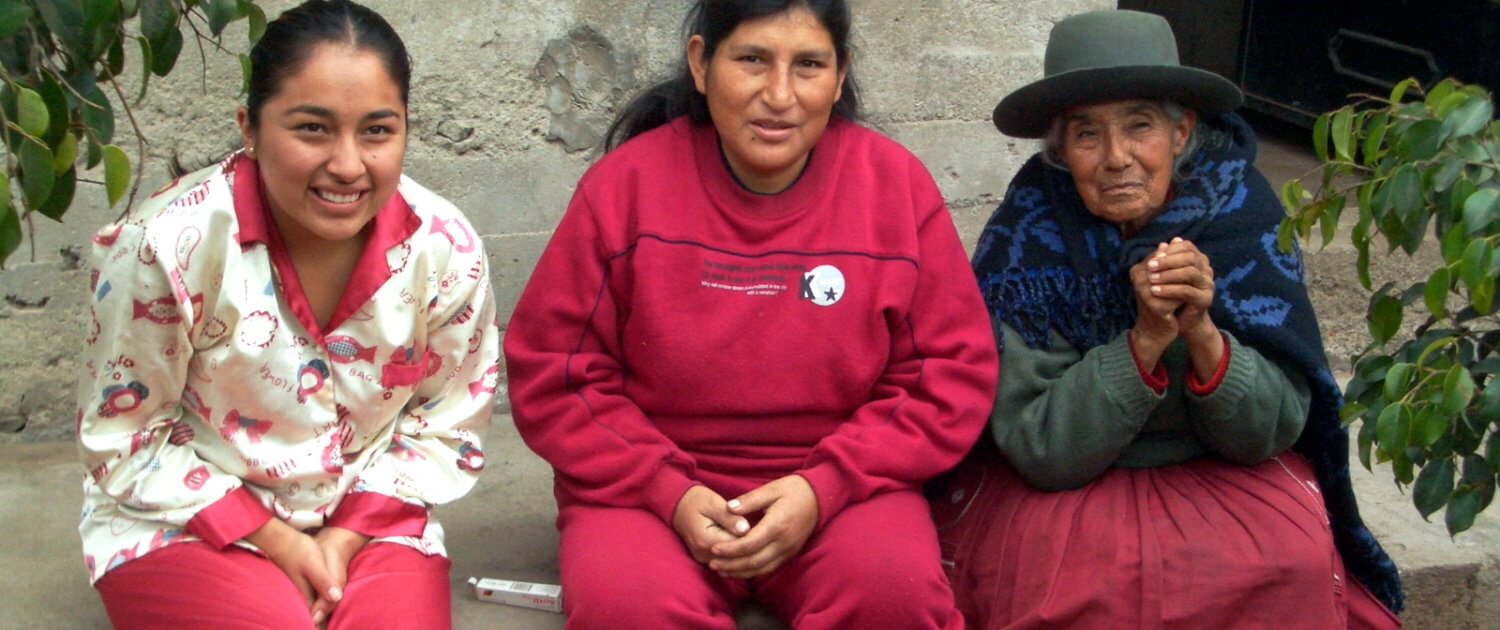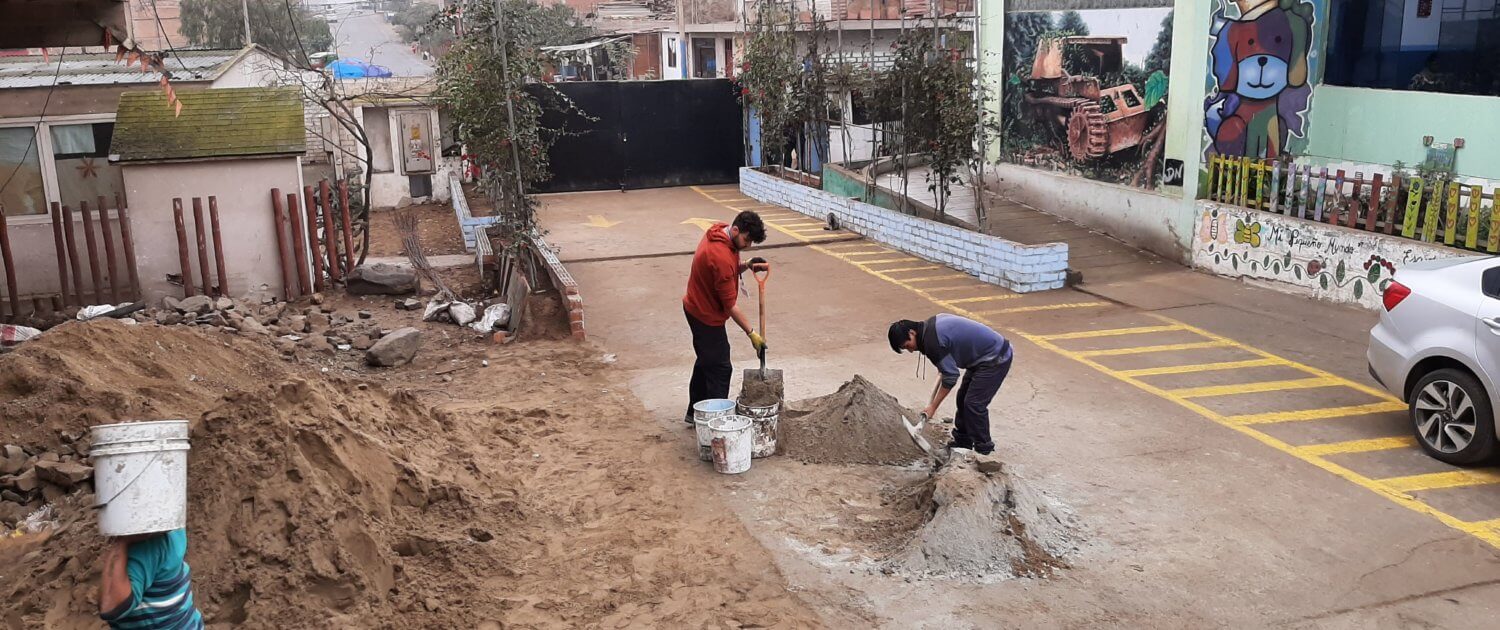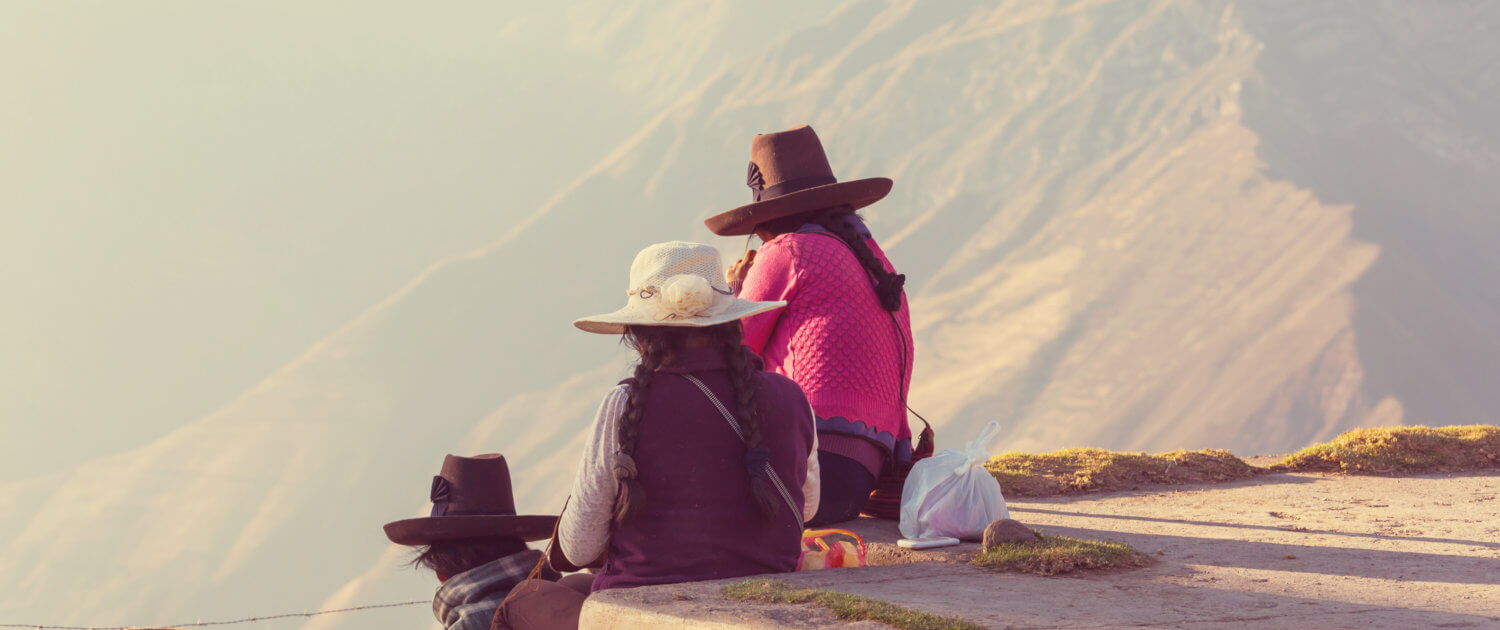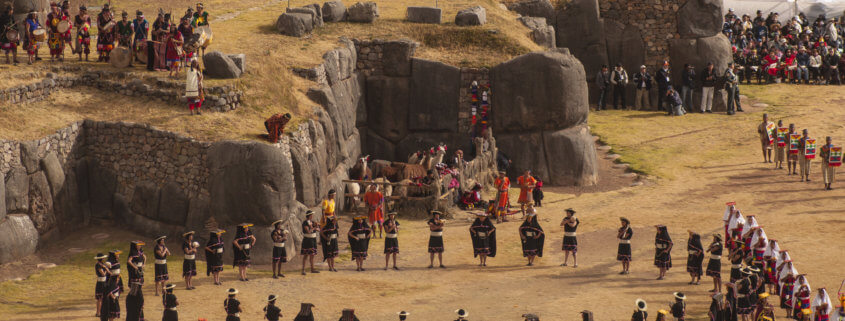Ayni: Honoring the Humanity in All
Through the generations, the indigenous people of the Andes have lived in an interdependent society that relies on every member to honor the other. All work is shared, but more – prayer, play and projects are conducted as a community. The Quechua word for this mutuality is “ayni”, meaning “today for you, tomorrow for me,” suggesting that giving comes before receiving. “Ayni” is the only commandment of the Incan religion that the Andeans know and keep until this day. Ayni is the thread that holds the fabric of Andean existence together. Peru Country Manager Daniel Salazar writes about how he discovered the spirit of ayni in the humble mountain communities outside Lima as a leader of Global Volunteers teams.
I first came across the concept of faena, a derivative of ayni, in the shanty town of Alto Progreso, where Global Volunteers worked for several years. Even though faena is part of the heritage of Peru as a whole, it wasn’t part of my culture. This is because faena comes from a completely different worldview, a non-Western one, where life is not exclusively about the self.

As has any other shanty town in Lima, Alto Progreso was formed by people escaping from extreme poverty and violence in remote villages of the jungle and the Andes. Most of the people living in shanties in Lima still hold their native worldview of living one with their community. They cannot think of their personal well-being apart from that of the community. They must contribute to the progress of their community and can expect their neighbors to do the same for them. The Quechua word ayni describes this culture of reciprocity and solidarity, and its symbol was the “crossed hands.”
While ayni became state policy in the Inca Empire, it actually transcended the philosophical concept, and became a way of living. In practice, ayni takes place as faena. Faena is the communal work that is done to benefit someone in the community or the whole community. It’s usually done one day of the week and with at least one representative of each family. This is how Alto Progreso built stairs to their community and how they carved out a small soccer field from the top of a rocky hill with no machinery.

When we plan labor projects with community leaders – before in Alto Progreso, and now at Sagrada Familia – they call for faena. With faena, we built sidewalks and safety walls in Alto Progreso. At Sagrada Familia – thanks to volunteers’ donations – a team of volunteers worked with the community to build three pre-k classrooms. Once the team left, the job was completed through faena. This has two implications. First, that the community calls for faena because these projects are really needed and are considered important for the whole community. Second, when volunteers participate in faena this shows the community that they can count on us, they can trust us, we care about them, and in the end we are all part of the same ayllu (village or community). Nothing creates peace, builds relationships, and brings about justice like faena. Finally, once you have participated in one of these projects, the community sees you as one of them, and you feel part of it as well. Now I belong to the Sagrada Familia family. I know I have a duty to them, and I see how they care for me, too. That feeling is amazing. Volunteers have described this experience as something magical. You should experience it, too.

The practice of ayni is an ideal of Global Volunteers’ partnerships. We nurture mutuality by working under the direction of and hand-in-hand with local people. Global Volunteers programs are not charity; rather, we foster mutual understanding and respect in our agenda to wage peace and promote justice through service.



 Global Volunteers 2020
Global Volunteers 2020
Leave a Reply
Want to join the discussion?Feel free to contribute!